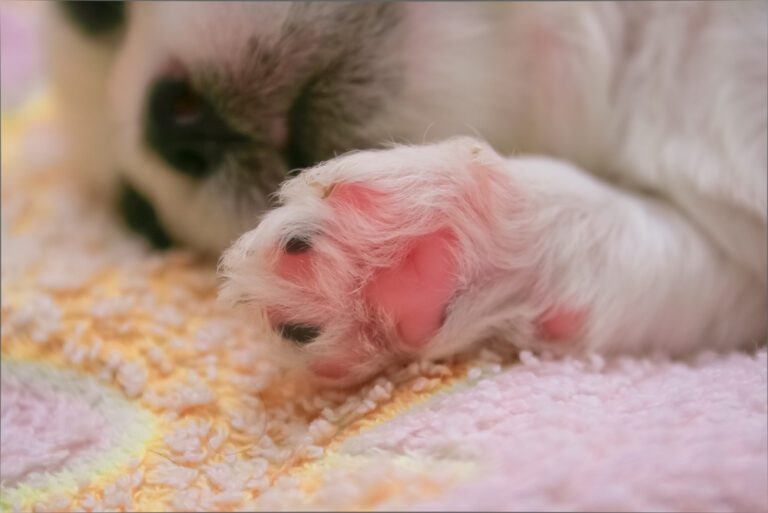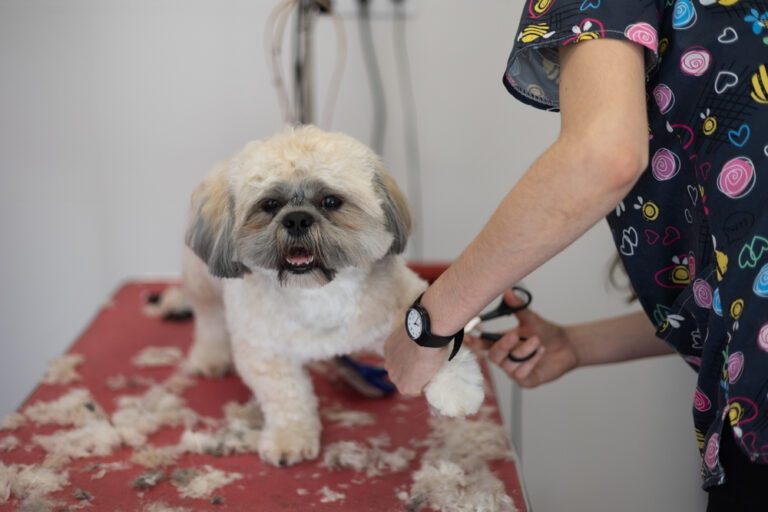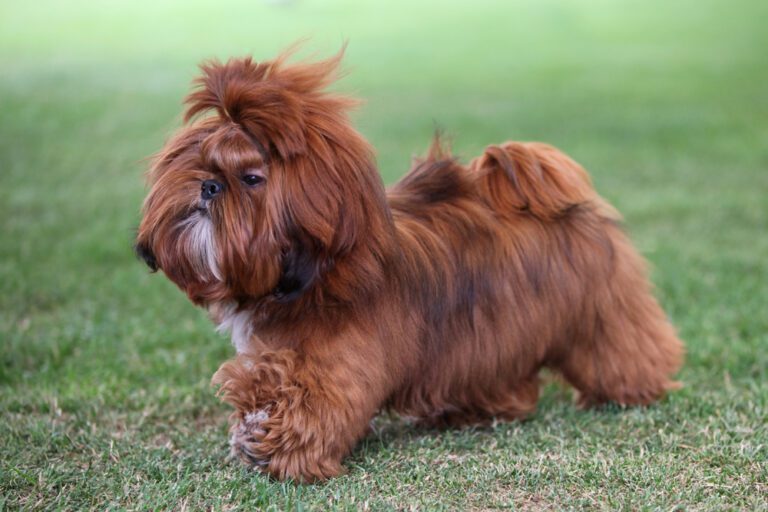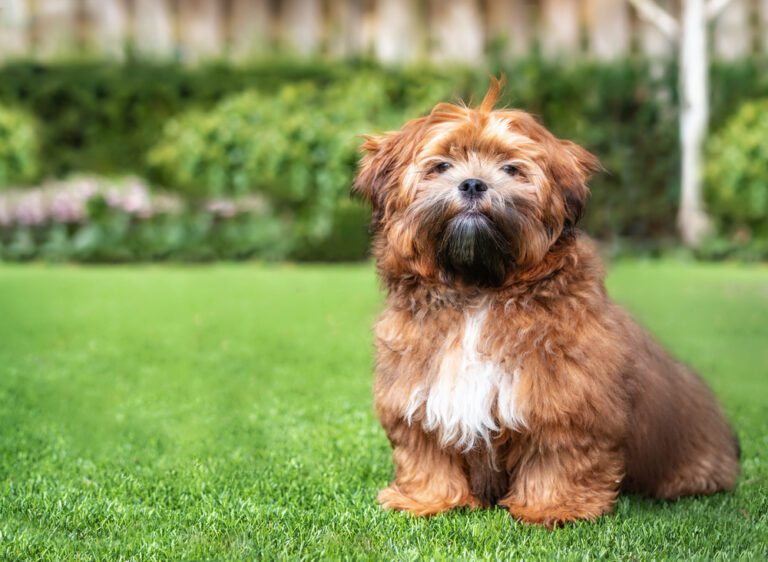Characteristics of Shih Tzus: A Comprehensive Guide
The Essential Characteristics of Shih Tzus: With their distinctive appearance and charming personality, Shih Tzus have long been cherished as companion dogs. Originating from Tibet and later flourishing in China, these small-sized canines have won the hearts of many pet enthusiasts worldwide.
This comprehensive guide delves into the essential characteristics that define Shih Tzus, shedding light on their history, temperament, physical traits, and the unique joys they bring to those fortunate enough to share their homes. Explore the world of Shih Tzus as we uncover the key aspects that make them one of the most beloved dog breeds.
History and origins of the Shih Tzu breed
The rich history of the Shih Tzu dates back to ancient times, originating in the mountainous regions of Tibet. Bred by Tibetan monks, these dogs were revered for their association with Buddhism, often considered sacred companions that brought joy and tranquility to monastic life.
As the breed evolved, Shih Tzus found their way to the imperial courts of China during the Ming and Qing dynasties. Their royal connection earned them the name “Shih Tzu,” which translates to “Lion Dog” in Mandarin. The breed was adored by Chinese royalty, serving as prized lapdogs and companions within the palace walls.
The journey of the Shih Tzu continued as they were introduced to the Western world in the early 20th century. Empress Dowager Cixi, the last empress of China, played a crucial role in the breed’s global recognition. During her reign, she presented Shih Tzus as diplomatic gifts to visiting dignitaries, contributing to their popularity beyond China’s borders.
Despite political upheavals and time challenges, the Shih Tzu has endured as a beloved and cherished breed. Their captivating history reflects a legacy of companionship, loyalty, and the ability to bring joy to households, making them not just pets but revered family members. Understanding the historical roots of the Shih Tzu enhances our appreciation for these delightful companions and their enduring charm.
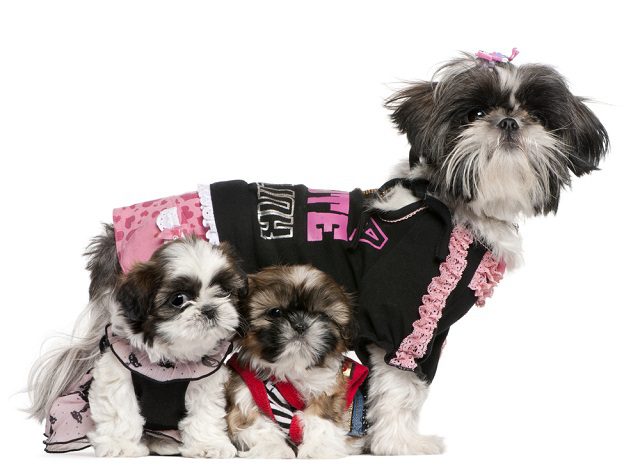
Physical characteristics and appearance of Shih Tzus
The Shih Tzu, often described as a small but sturdy toy breed, boasts distinctive physical factors contributing to its timeless appeal. Here, we delve into the unique features that define Shih Tzu’s appearance, making it stand out among canine companions.
Size and Build
The Shih Tzu is a compact dog with a solid build, typically weighing between 9 to 16 pounds (4 to 7 kilograms). Its height ranges from 8 to 11 inches (20 to 28 centimeters) at the shoulder. Despite its small size, the Shih Tzu carries an air of elegance and poise.
Head and Expression
A hallmark of the Shih Tzu is its distinctively broad, round head adorned with a short, upturned nose. Large, expressive eyes, set wide apart, convey warmth and intelligence. The breed’s characteristic underbite, where the lower jaw slightly protrudes beyond the upper jaw, contributes to its endearing and unique facial expression.
Coat and Grooming
One of the most recognizable features of the Shih Tzu is its luxurious double coat, which can come in various colors and patterns. Regular grooming is essential to maintain their coat’s silky texture and prevent matting. The breed’s hair often grows long, offering opportunities for creative grooming styles that add to its charm.
Tail and Posture
Shih Tzus carry their plumed tail over their back, creating a distinctive silhouette. Their alert and dignified posture showcased a proud demeanor despite their small stature.
Understanding the physical characteristics of Shih Tzus not only aids in their care but also enhances the appreciation for the breed’s unique beauty. The Shih Tzu’s physical traits contribute to its timeless allure as a beloved companion in the show ring or on a living room couch.
Personality traits and temperament of Shih Tzus
Beyond their charming appearance, Shih Tzus are renowned for their distinct personality traits and delightful temperament, making them cherished companions in households worldwide. Let’s explore the endearing qualities that define Shih Tzu’s character.
Affectionate and Friendly
Shih Tzus are inherently affectionate, forming strong bonds with their human counterparts. Known for their friendly disposition, they thrive on companionship and are often eager to participate in family activities. Their love extends to their human family and other pets, establishing them as amiable members of multi-pet households.

Playful and Lively
Despite their small size, Shih Tzus are spirited and playful. They exhibit a youthful exuberance that endears them to individuals of all ages. Whether engaging in interactive play or simply enjoying a stroll, Shih Tzus brings lively energy to their surroundings.
Alert and Watchful
Shih Tzus possess a keen sense of awareness, making them excellent watchdogs. Their alert nature and distinctive bark serve as an effective deterrent, alerting their owners to potential disturbances. While their stature may not be significant, their courage and protective instincts make them reliable guardians.
Adaptable and Easygoing
Adaptability is a crucial trait of the Shih Tzu. These dogs thrive in various environments, Whether in a bustling city apartment or a serene countryside home. Their easygoing nature makes them adaptable to different lifestyles, contributing to their popularity among diverse households.
Independent yet Affable
Shih Tzus exhibits a balance of independence and sociability. While they appreciate their alone time, they equally enjoy social interactions. This trait makes them well-suited for families with varying schedules, as they can adapt to periods of solitude while eagerly anticipating quality time with their loved ones.
Understanding the personality traits and temperament of Shih Tzus enhances the bond between owners and their canine companions. Their combination of affection, playfulness, and watchfulness contributes to a well-rounded and delightful presence that captivates dog enthusiasts worldwide.
Grooming and care guidelines for Shih Tzus
Ensuring the well-being of a Shih Tzu involves dedicated grooming and care routines that cater to their unique coat and overall health. Here, we outline essential guidelines for maintaining the health and happiness of these delightful companions.
Regular Brushing
The Shih Tzu’s luxurious double coat requires regular brushing to prevent matting and tangling. A daily brushing routine helps keep their hair silky and free from debris. Depending on their lifestyle and preferences, owners may experiment with different grooming styles, from the classic long coat to a more practical shortcut.
Bathing and Hygiene
Regular baths are crucial for maintaining a clean and healthy coat for Shih Tzus. Using a mild, dog-friendly shampoo helps preserve the natural oils in their skin. Attention to facial hygiene is also essential, as facial folds may require gentle cleaning to prevent skin irritations.
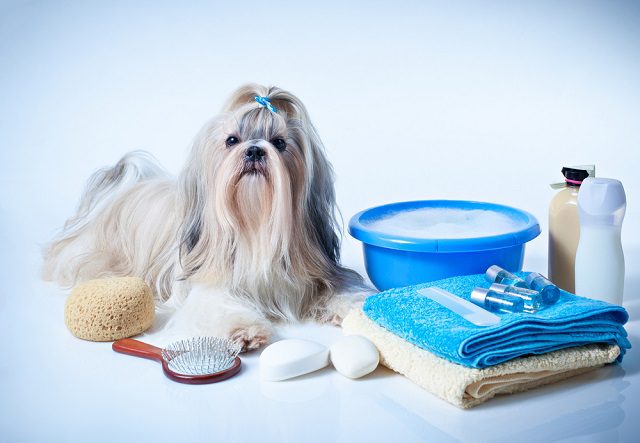
Dental Care
Dental hygiene is a vital aspect of Shih Tzu care. Regular tooth brushing helps prevent dental issues, and providing dental treats or toys can contribute to oral health. Regular veterinary check-ups may include dental assessments to address any emerging concerns.
Eye Care
Shih Tzus are prone to tear staining due to their facial structure. Cleaning their eyes with a damp, soft cloth can help reduce staining and prevent potential irritation. If tear staining persists, consulting with a veterinarian for guidance is advisable.
Nail Trimming
Keeping Shih Tzu’s nails trimmed is essential for their comfort and mobility. Regular nail trims prevent overgrowth and reduce the risk of discomfort or injury. Owners can use dog-friendly nail clippers or seek professional grooming assistance.
Ear Maintenance
Shih Tzus’ ears may require regular cleaning to prevent wax build-up and infections. Gently wiping the ears with a dog-approved ear cleaner and cotton ball can help maintain ear health. Routine checks for redness or signs of discomfort are recommended.
Nutritious Diet
A well-balanced, high-quality diet is fundamental to a Shih Tzu’s overall health. Consultation with a veterinarian can aid in determining the appropriate diet based on factors such as age, weight, and any specific health considerations.
Regular Exercise
Despite their small size, Shih Tzus benefits from regular exercise to maintain a healthy weight and mental well-being. Daily walks, playtime, and interactive activities contribute to their overall fitness.
By incorporating these grooming and care guidelines into the routine, owners can ensure that their Shih Tzu looks delightful and enjoys optimal health and comfort throughout their lives. Regular veterinary check-ups are recommended to address specific health concerns and provide these beloved companions with a long, happy life.
Health concerns and common medical issues in the breed
While Shih Tzus are generally robust and healthy dogs, like any breed, they may be prone to specific health concerns. Being aware of these potential issues and taking preventive measures is crucial for ensuring the well-being of these beloved companions.
Brachycephalic Airway Syndrome
The Shih Tzu’s brachycephalic (short-nosed) facial structure can lead to respiratory challenges. This condition, known as Brachycephalic Airway Syndrome (BAS), may result in snorting, snuffling, or difficulty breathing, particularly in hot or humid conditions. Owners should be cautious during strenuous exercise and ensure their Shih Tzus can access relaxed, well-ventilated environments.
Dental Problems
Shih Tzus are predisposed to dental issues due to their small jaw size and crowded teeth. Regular dental care, including brushing and providing dental treats, prevents periodontal disease.
Eye Conditions
Shih Tzus are prone to various eye conditions, including cataracts and progressive retinal atrophy (PRA). Regular eye check-ups and attention to signs such as excessive tearing or cloudiness are crucial for early detection and management.
Ear Infections
The breed’s floppy ears can be susceptible to infections. Regular cleaning and monitoring for signs of redness, odor, or discomfort are essential. Owners should seek prompt veterinary attention if any issues arise.
Allergies
Shih Tzus may experience allergies, often as skin irritations or ear infections. Identifying and avoiding potential allergens and consulting a veterinarian for appropriate treatment are vital in managing allergic reactions.
Hip Dysplasia
While not as common as in larger breeds, Shih Tzus can be prone to hip dysplasia. Maintaining a healthy weight, providing regular, low-impact exercise, and ensuring a balanced diet contribute to joint health.
Renal Dysplasia
Some Shih Tzus may be predisposed to renal dysplasia, a condition affecting the kidneys. Regular veterinary check-ups focusing on kidney function help monitor and manage this potential concern.
Intervertebral Disc Disease (IVDD)
The long back and short legs of Shih Tzus may contribute to the risk of IVDD, a spinal condition. Owners should be cautious about activities that may strain the spine and seek veterinary advice if signs of back pain or mobility issues emerge.
Regular veterinary check-ups, a nutritious diet, preventive care, and a watchful eye on potential symptoms are integral to maintaining the health and happiness of Shih Tzus. Responsible breeding practices that prioritize health considerations can also contribute to minimizing the risk of genetic conditions in the breed. Owners can provide their Shih Tzus a fulfilling and healthy life by staying informed and proactive.
Training and socialization tips for Shih Tzus
Training and socialization are vital to fostering a well-behaved and balanced Shih Tzu. These delightful companions respond well to positive reinforcement and a consistent, gentle approach. Here are some tips to help guide the training and socialization of your Shih Tzu:
Start Early
Early training and socialization are crucial for Shih Tzus. During their puppyhood, begin basic commands, such as sit, stay, and come. This establishes a foundation for good behavior and creates a strong bond between the owner and the dog.
Positive Reinforcement
Shih Tzus thrives on positive reinforcement. For desired behaviors, use treats, praise, and affection as rewards. Avoid harsh punishments, as these can lead to fear and anxiety, hindering the training process.
Consistency is Key
Consistency is essential in Shih Tzu training. Use the same commands and cues consistently, and ensure all family members are on the same page regarding rules and expectations. This helps prevent confusion and reinforces positive behavior.
Socialization Opportunities
Expose your Shih Tzu to various people, environments, and other animals from an early age. This helps prevent shyness or fearfulness and fosters a confident and well-adjusted adult dog. Puppy classes, dog parks, and supervised playdates are excellent opportunities for socialization.
Gentle Handling and Touch
Shih Tzus, like many small breeds, can be sensitive to handling. Gradually acclimate your dog to being touched, brushed, and groomed. This not only aids in grooming but also ensures your Shih Tzu remains comfortable with various handling forms throughout their life.
Patience and Understanding
Shih Tzus may have an independent streak, so patience is vital during training sessions. Understanding their temperament and adjusting your approach fosters a positive learning experience for the owner and dog.
House Training
Consistent and positive reinforcement is vital for successful house training. Establish a routine for feeding, bathroom breaks, and playtime. Supervise your Shih Tzu indoors and provide ample opportunities for outdoor bathroom breaks.
Interactive Play
Incorporate interactive play into your Shih Tzu’s routine to provide mental stimulation and strengthen the bond between owner and dog. Puzzle toys and games that engage their intelligence are delightful for Shih Tzus.
Basic Obedience Commands
Teach essential commands that enhance safety and control, such as recall, sit, stay, and leash manners. These commands contribute to a well-behaved dog and ensure their safety in various environments.
Professional Training Classes
Consider enrolling your Shih Tzu in professional training classes. Trained instructors can provide guidance, address specific behavior concerns, and offer socialization opportunities in a controlled environment.
Incorporating these training and socialization tips into your Shih Tzu routine will shape a well-mannered companion and strengthen your bond with your furry friend. Consistency, positive reinforcement, and a patient approach contribute to a happy and harmonious relationship with your Shih Tzu.
The importance of nutrition and exercise for Shih Tzus
Proper nutrition and regular exercise are paramount to Shih Tzus’s health and well-being. These small and spirited dogs require a balanced diet and appropriate physical activity to thrive. Understanding the significance of nutrition and exercise contributes to a happy and healthy life for your Shih Tzu.
Balanced Nutrition
Providing a well-balanced and nutritious diet is fundamental to the health of Shih Tzus. High-quality dog food formulated for small breeds, with appropriate levels of protein, fats, carbohydrates, vitamins, and minerals, supports their energy levels, coat health, and overall vitality. Consult with your veterinarian to determine the most suitable diet based on your Shih Tzu’s age, weight, and health considerations.
Portion Control
Shih Tzus are prone to weight gain, and maintaining an appropriate weight is crucial for their well-being. Practice portion control and avoid overfeeding to prevent obesity-related health issues. Monitor your dog’s weight and adjust their diet accordingly regularly.
Hydration
Ensure your Shih Tzu has access to fresh, clean water. Proper hydration is vital for digestion, kidney function, and overall health. Monitor water intake, especially during warmer weather or after physical activity.
Exercise Requirements
Despite their small size, Shih Tzus has moderate exercise needs. Daily walks, playtime, and interactive activities help them expend energy, maintain a healthy weight, and prevent boredom. Tailor the intensity and duration of exercise to your dog’s age, health, and preferences.
Mental Stimulation
In addition to physical exercise, Shih Tzus benefits from mental stimulation. Puzzle toys, interactive games, and training sessions engage their intelligence, preventing behavioral issues and promoting a well-rounded lifestyle.
Weight Management
Obesity can lead to various health problems, including joint issues and respiratory problems. Regular exercise and a balanced diet play a crucial role in weight management. Monitor your Shih Tzu’s body condition and consult your veterinarian if adjustments to their diet or exercise routine are needed.
Senior Care
As Shih Tzu ages, their nutritional and exercise needs may change. Senior-specific dog food, supplemented with joint support if necessary, helps address the evolving health requirements of older dogs. Adjust the intensity and duration of exercise to accommodate their changing abilities.
Consultation with Veterinarian
Regular veterinary check-ups are essential to assess your Shih Tzu’s overall health and address specific nutritional or exercise considerations. Your veterinarian can provide personalized recommendations based on your dog’s requirements.
Recognizing the importance of nutrition and exercise in the care of Shih Tzus is integral to ensuring their longevity and quality of life. A holistic approach, combining a nutritious diet, portion control, regular exercise, and mental stimulation, contributes to a happy, healthy, and well-balanced Shih Tzu companion.
Understanding the lifespan and life stages of Shih Tzus
As with any dog breed, Shih Tzus has distinct life stages, each with unique characteristics and care requirements. Understanding these stages is essential for providing optimal care and companionship throughout your Shih Tzu’s life.
Puppyhood (0-1 Year)
The puppy stage is characterized by rapid growth, exploration, and playful behavior. During this period, Shih Tzu puppies require special attention to diet, socialization, and basic training. Introduce them to various environments, people, and gentle handling to build a foundation for a well-adjusted adult dog.
Adolescence (1-2 Years)
Adolescence brings continued growth and energy. Shih Tzus may test boundaries during this stage, requiring consistent training and positive reinforcement. Maintain a balanced diet that supports their development and monitor their weight to prevent excessive growth-related issues.
Adulthood (2-7 Years)
The adult stage is marked by the prime years of Shih Tzu’s life. They are generally active and social and enjoy regular exercise and play. Nutrition becomes crucial to maintaining their health, and regular veterinary check-ups help monitor for emerging health concerns. Engage in interactive play and maintain a balanced diet to support their overall well-being.
Mature Adulthood (7-10 Years)
As Shih Tzus enter mature adulthood, their energy levels may decrease, and they may require adjustments in diet and exercise. Regular veterinary check-ups become even more crucial to monitor for age-related issues such as dental health, joint concerns, and vision changes. Provide a comfortable and safe environment, and be attentive to any signs of discomfort or changes in behavior.
Senior Years (10+ Years)
Shih Tzus may experience decreased mobility in their senior years and require a senior-specific diet that addresses their changing nutritional needs. Regular veterinary visits become essential for early detection and management of age-related conditions. Adapt their living environment to accommodate any physical limitations and provide them with extra comfort and attention.
End-of-life Care
The end of Shih Tzu’s life is a challenging but essential stage. Senior dogs may require specialized care for conditions such as arthritis or cognitive decline. Provide comfort, warmth, and companionship, and consult with your veterinarian to ensure their quality of life. Decisions regarding end-of-life care and euthanasia, if necessary, should be made with the guidance and support of veterinary professionals.
Understanding the lifespan and life stages of Shih Tzus allows owners to provide targeted care at each phase, promoting a happy and healthy journey from puppyhood to senior years. Tailoring nutrition, exercise, and veterinary care to the specific needs of each life stage ensures that your Shih Tzu receives the best possible care throughout their lifespan.
Final thoughts
In wrapping up, the Shih Tzu, with its captivating charm, is more than a pet—it’s a cherished companion. This guide covered crucial aspects, from their history and physical traits to grooming, health, training, and life stages.
Owning a Shih Tzu is a journey of joy and responsibility. Ensuring their well-being involves a balanced diet, regular exercise, grooming routines, and attentive healthcare. These delightful dogs offer companionship and a source of comfort and happiness.
Prioritize your Shih Tzu’s needs, seek professional advice, and savor every moment. The bond between you and your Shih Tzu is a special connection that promises a lifetime of shared memories. Here’s to the enduring joys of Shih Tzu companionship!




